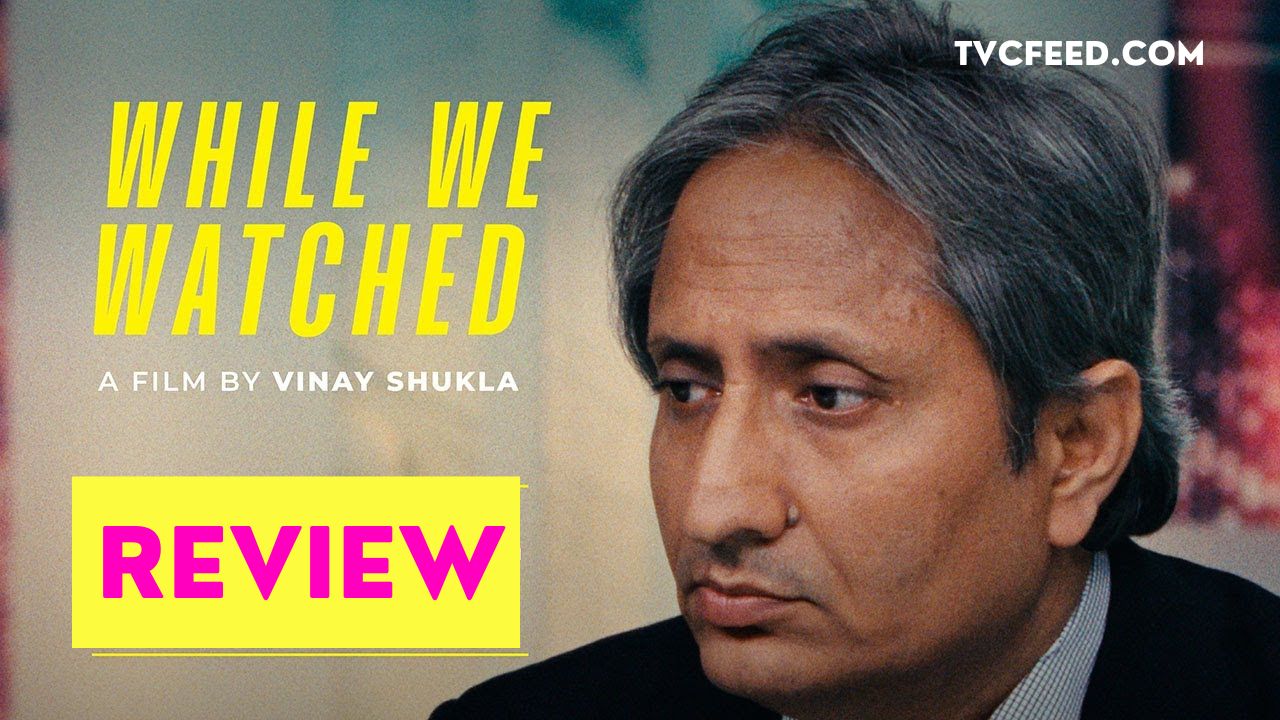While We Watched Movie Review | struggle of ravish kumar
Explore the urgent state of contemporary journalism and Ravish Kumar's heroic battle against extremism in our review of "While We Watched." Discover the striking parallels with American media and the price of journalistic integrity in today's turbulent landscape.
while we watched review
Unveiling the Urgency of Contemporary Journalism: "While We Watched" Review
In a world where information and discourse have become battlegrounds, the documentary "While We Watched" shines a stark light on the state of contemporary journalism. Directed by Vinay Shukla and embedded at the Indian news company NDTV, this eye-opening film follows the journey of Ravish Kumar, a journalist and newscaster, as he confronts the rising political extremism in his country, India. As we dive into this review, we'll explore the striking parallels between the Indian and American media landscapes, dissect Kumar's heroic battle for journalistic integrity, and reflect on the documentary's significance in today's turbulent times.
The Parallel Between Indian and American Media Landscape
For many American viewers, the tumultuous situation in India during the 2019 parliamentary elections serves as a mirror reflecting the prominence of polarizing news outlets like Fox News. The documentary astutely captures the politicized ethics and swirling hysteria that have led to the decline of contemporary journalism, drawing chilling parallels to the American media landscape.
In the first half-hour, "While We Watched" takes its time to establish the broad problem. We witness a series of deafening clips featuring Indian anchors fervently vying for the public's attention by peddling polarizing content. They denounce dissenters as enemies of the state or anti-nationalists, creating an environment rife with division and misinformation. Shukla skillfully juxtaposes these chaotic scenes with moments of Kumar in melancholic silence, underscoring the gravity of the journalistic crisis.
This dynamic interplay between sensationalism and introspection, while occasionally bordering on overwrought, effectively conveys the dire state of journalism not only in India but also in the United States. It emphasizes the critical need for responsible reporting and unbiased journalism to preserve the integrity of news.
Ravish Kumar's Battle Against Extremism in Journalism
The heart of "While We Watched" lies in Ravish Kumar's crisis of faith. As the film progresses, we witness Kumar's relentless pursuit of truth in the face of extremism. The government's alleged censorship of NDTV's broadcasts, attacks from fellow anchors, and a deluge of death threats from irate viewers paint a bleak picture of the price one pays for seeking the truth.
NDTV itself undergoes a transformation, with viewership plummeting and journalists departing as a result of Kumar's unwavering commitment to journalistic integrity. Even his superiors suggest that he temper his criticisms of the government and rival news programs to protect the network's dwindling reach.
The documentary's standout moments occur when we witness the craft of reporting in action. Journalists at NDTV, despite limited resources and mounting obstacles, work tirelessly to deliver breaking news stories. Kumar's internal struggles add depth to the narrative as he grapples with the overwhelming pressures of his profession. His interaction with a crank caller, where he responds with humor and even asks the threatening voice to sing along, showcases the resilience of a journalist dedicated to his mission.
As tensions escalate between Hindus and Muslims following a 2019 terrorist attack that claims the lives of 40 CRPF soldiers in India, Kumar's role as a beacon of truth becomes even more critical. He navigates treacherous waters, holding steadfast to his commitment to responsible journalism.
While We Watched Trailor:
The Price of Truth - A Closer Look at the Documentary's Impact
Throughout Kumar's journey, we catch glimpses of his reliance on his wife, Nayava. While we learn little about her beyond her supportive role and her work at a university, there's a sense that the documentary could have explored this dynamic further. By focusing predominantly on Kumar's role in the newsroom, the film occasionally risks becoming one-dimensional. It leaves us yearning for more insight into the key players of Indian television news and whether Kumar stands alone in his fight for journalistic integrity.
"While We Watched" serves as an urgent interrogation of the state of journalism today. However, it leaves us with a lingering question: who else is fighting against the bleakness of information and discourse? The documentary, while crucial and impactful, doesn't provide a comprehensive answer. It suggests that Kumar stands as a solitary figure in this battle, emphasizing the need for more individuals to champion responsible journalism.
In conclusion,
"While We Watched" is a powerful exploration of contemporary journalism's challenges and triumphs. It draws striking parallels between the Indian and American media landscapes, highlights Ravish Kumar's heroic battle against extremism, and prompts viewers to reflect on the price one pays for the truth. As we navigate the tumultuous waters of today's media landscape, the documentary serves as a poignant reminder of the vital role journalists play in preserving the integrity of news.
In a world where information and discourse have become battlegrounds, the documentary "While We Watched" shines a stark light on the state of contemporary journalism. Directed by Vinay Shukla and embedded at the Indian news company NDTV, this eye-opening film follows the journey of Ravish Kumar, a journalist and newscaster, as he confronts the rising political extremism in his country, India. As we dive into this review, we'll explore the striking parallels between the Indian and American media landscapes, dissect Kumar's heroic battle for journalistic integrity, and reflect on the documentary's significance in today's turbulent times.
Written by: Md Muktar Hossain
























